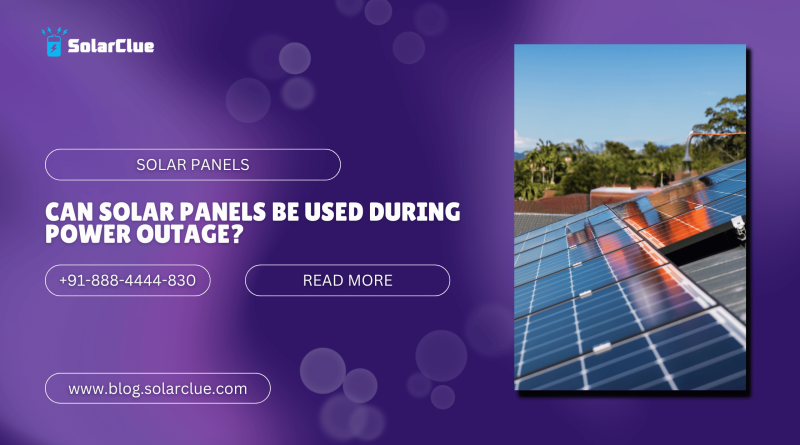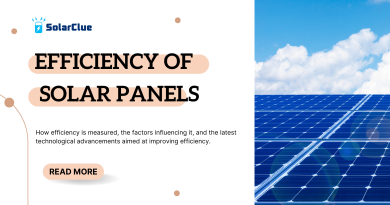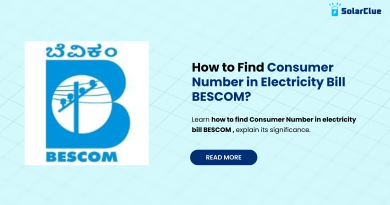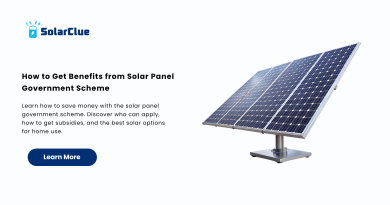Can Solar Panels Be Used During Power Outage?
Solar panels are an excellent source of renewable energy, but their performance during power outages can vary significantly depending on the system setup. This blog explores the differences between grid-tied and off-grid solar systems, the role of battery storage, safety considerations, and alternative backup power sources.
Table of Contents
- 1 Grid-Tied vs. Off-Grid Solar Systems
- 1.1 Grid-Tied Solar Systems:
- 1.2 Off-Grid Solar Systems:
- 1.2.1 The Importance of Battery Storage for Backup Power
- 1.2.2 Safety Considerations During Power Outages
- 1.2.3 Maximizing Solar Energy Usage During Outages
- 1.2.4 The Role of Backup Generators in Combination with Solar Power
- 1.2.5 Government Policies and Incentives for Battery Storage
- 1.2.6 The Future of Solar Power and Grid Resilience
- 1.3 Comparison of Backup Power Options
- 1.4 FAQs
Grid-Tied vs. Off-Grid Solar Systems
Grid-Tied Solar Systems:
These systems are connected to the electrical grid and allow homeowners to use solar power during the day and draw power from the grid when needed. During a power outage, most grid-tied systems automatically shut down to prevent backfeeding, which could endanger utility workers repairing the grid.
Off-Grid Solar Systems:
These systems are entirely independent of the electrical grid. They rely on solar panels and battery storage to provide power. During a power outage, off-grid systems continue to operate normally, as they are not affected by grid disruptions.
| Feature | Grid-Tied Solar Systems | Off-Grid Solar Systems |
|---|---|---|
| Grid Connection | Connected to the electrical grid | Completely independent of the grid |
| Power Availability | Depends on grid; shuts down during outages | Operates independently; unaffected by outages |
| Battery Storage | Optional; primarily for backup | Essential for continuous power supply |
| Installation Cost | Generally lower due to grid support | Higher due to need for battery storage and management |
| Maintenance Complexity | Lower, as grid acts as backup | Higher, as system must be self-sufficient |
The Importance of Battery Storage for Backup Power
Battery storage is crucial for providing power during outages, especially in grid-tied systems. Batteries store excess solar energy generated during the day for use when the sun isn’t shining or during power outages. Key benefits include:
- Continuity: Ensures a continuous power supply during outages.
- Energy Independence: Reduces reliance on the electrical grid.
- Peak Shaving: Can help reduce energy costs by using stored energy during peak demand times.
Safety Considerations During Power Outages
Safety is a primary concern during power outages, particularly for grid-tied solar systems. Key considerations include:
- Automatic Shutdown: Grid-tied systems typically have an automatic shutdown feature to prevent backfeeding, which protects utility workers.
- Battery Maintenance: Proper maintenance of batteries is essential to prevent hazards such as overheating, leaks, and explosions.
- Isolation Switches: Installing isolation switches can help safely disconnect the solar system from the grid during outages.
Maximizing Solar Energy Usage During Outages
To maximize solar energy usage during outages:
- Use Energy-Efficient Appliances: Prioritize energy-efficient appliances to reduce overall power consumption.
- Monitor Battery Levels: Keep an eye on battery levels to manage power usage effectively.
- Prioritize Essential Loads: Ensure that essential appliances, such as refrigerators and medical equipment, are prioritized for power during outages.
The Role of Backup Generators in Combination with Solar Power
Backup generators can complement solar power systems, providing additional power during extended outages or periods of low solar generation. Key points include:
- Fuel Types: Generators can run on various fuels, including gasoline, diesel, and natural gas.
- Integration: Modern generators can be integrated with solar systems to automatically kick in when battery levels are low or during prolonged outages.
- Costs: While generators add to the initial cost, they provide a reliable backup power source.
Government Policies and Incentives for Battery Storage
Government policies and incentives play a significant role in promoting battery storage adoption. Examples include:
- Tax Credits: Federal and state tax credits can offset the cost of battery storage systems.
- Rebates: Some utility companies offer rebates for installing battery storage.
- Grants and Subsidies: Various grants and subsidies are available to encourage renewable energy adoption, including battery storage.
The Future of Solar Power and Grid Resilience
The future of solar power and grid resilience looks promising, with advancements in technology and increasing focus on sustainability. Trends include:
- Smart Grids: Development of smart grids that can manage energy more efficiently and integrate renewable sources seamlessly.
- Advanced Batteries: Innovations in battery technology, such as solid-state batteries, promise longer life and greater efficiency.
- Microgrids: The rise of microgrids allows communities to operate independently from the main grid, enhancing resilience.
Comparison of Backup Power Options
| Backup Option | Initial Cost | Maintenance Cost | Reliability | Use Case |
|---|---|---|---|---|
| Battery Storage | High | Low | High | Short to medium outages, energy independence |
| Backup Generators | Medium | Medium to High | High | Extended outages, areas with frequent power cuts |
| Hybrid Systems | High | Medium | Very High | Comprehensive backup, seamless power supply |
| Grid-Tied Only | Low | Low | Low during outages | Areas with reliable grid power, minimal backup needed |
Cost-Benefit Analysis of Different Backup Power Options
Conducting a cost-benefit analysis helps determine the best backup power option. Consider the following:
- Initial Costs: Compare the upfront costs of battery storage, generators, and other backup options.
- Maintenance Costs: Factor in ongoing maintenance expenses.
- Reliability: Assess the reliability and performance of each option during outages.
- Incentives: Account for available incentives and rebates to reduce overall costs.
Conclusion
Here at SolarClue®, we offer a smart, practical, and “beautiful” solution. You will be answered for all the questions related to Solar.
We provide all kinds of brands that are the Best Solar panels in India.
If you are the one who is planning for the solar power system. Don’t hesitate to contact our team!
Looking forward to empowering you with solar energy, just like hundreds of our other clients!
FAQs
1. Can solar panels work during a power outage?
Grid-tied solar panels typically shut down during a power outage to prevent backfeeding and protect utility workers. Off-grid systems with battery storage can continue to operate normally during outages.
2. What is the role of battery storage in solar power systems?
Battery storage stores excess solar energy for use when solar panels are not generating power, such as during nighttime or power outages, providing a continuous power supply.
3. Are backup generators a good alternative to battery storage?
Backup generators can be a good alternative or complement to battery storage, providing additional power during extended outages or periods of low solar generation. They add reliability but also increase initial and maintenance costs.
4. What safety measures should be considered for solar panels during outages?
Safety measures include automatic shutdown features for grid-tied systems, proper battery maintenance to prevent hazards, and isolation switches to safely disconnect the system from the grid.
5. What government incentives are available for battery storage?
Incentives include federal and state tax credits, utility rebates, and various grants and subsidies aimed at promoting renewable energy adoption, including battery storage systems.




